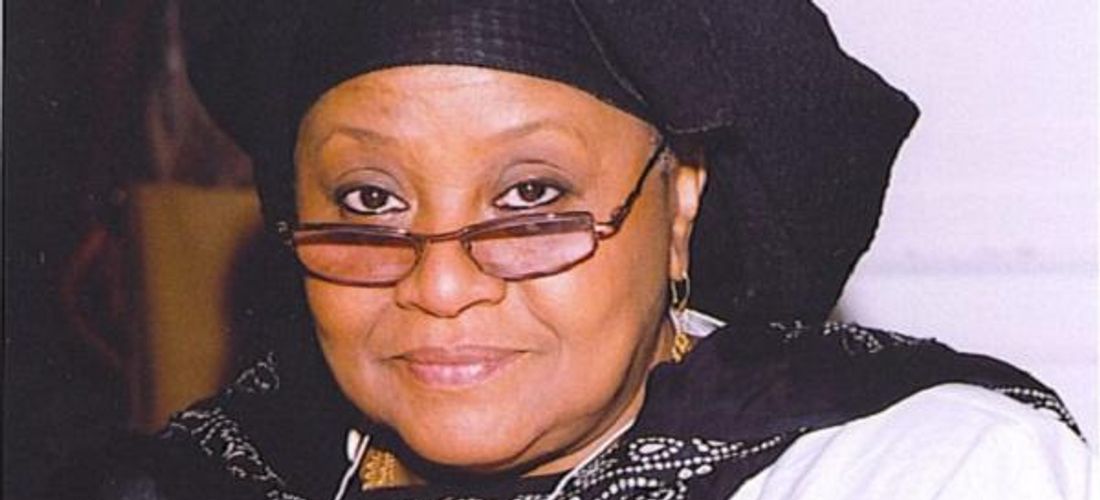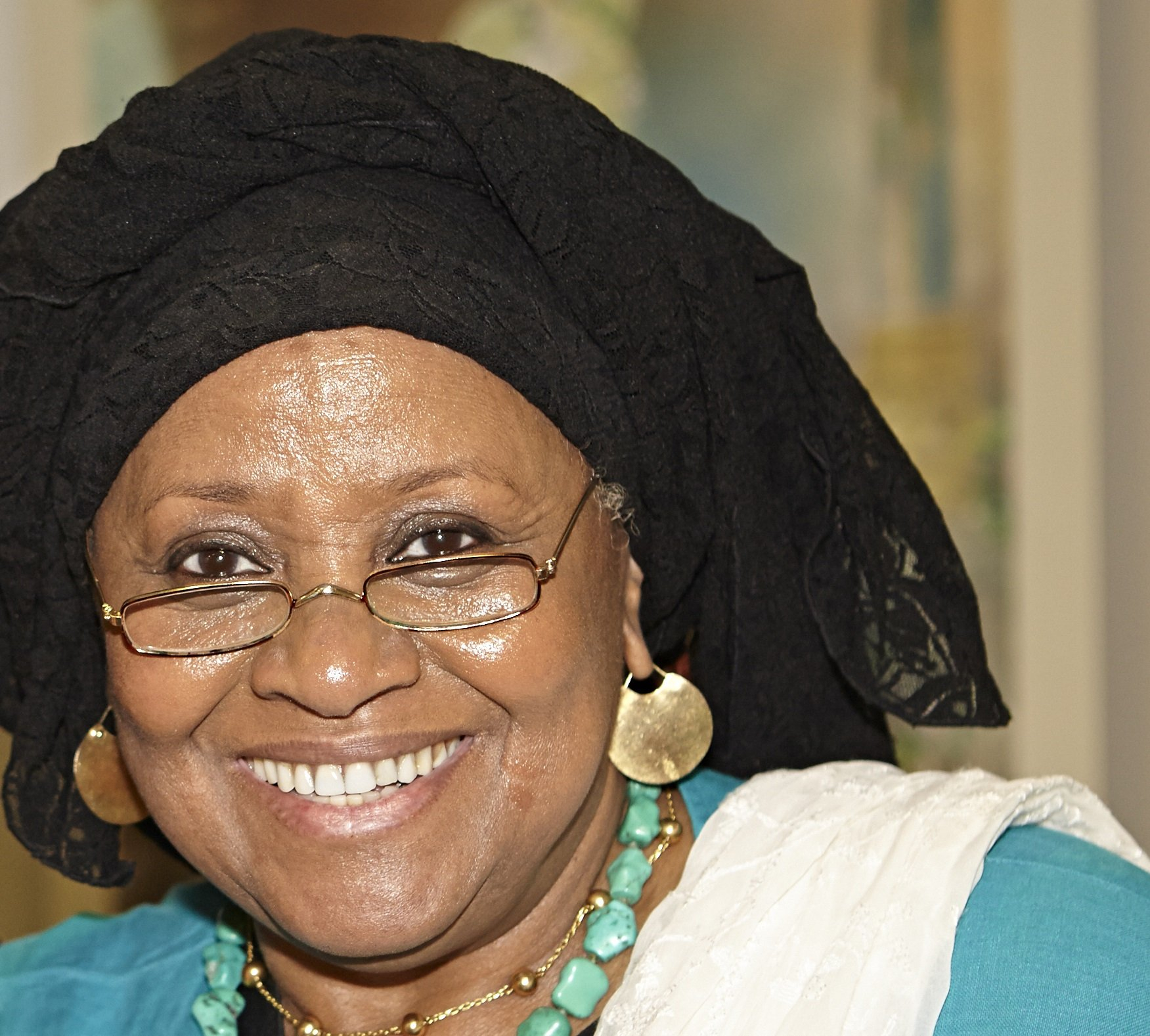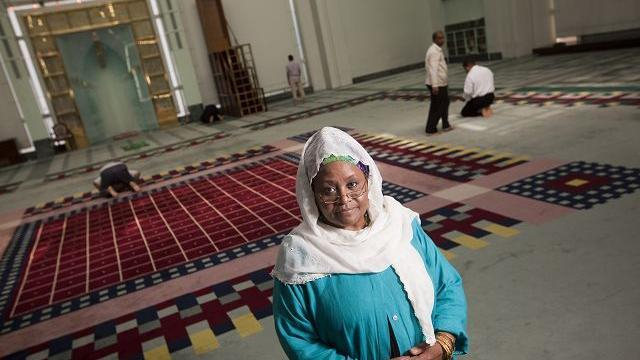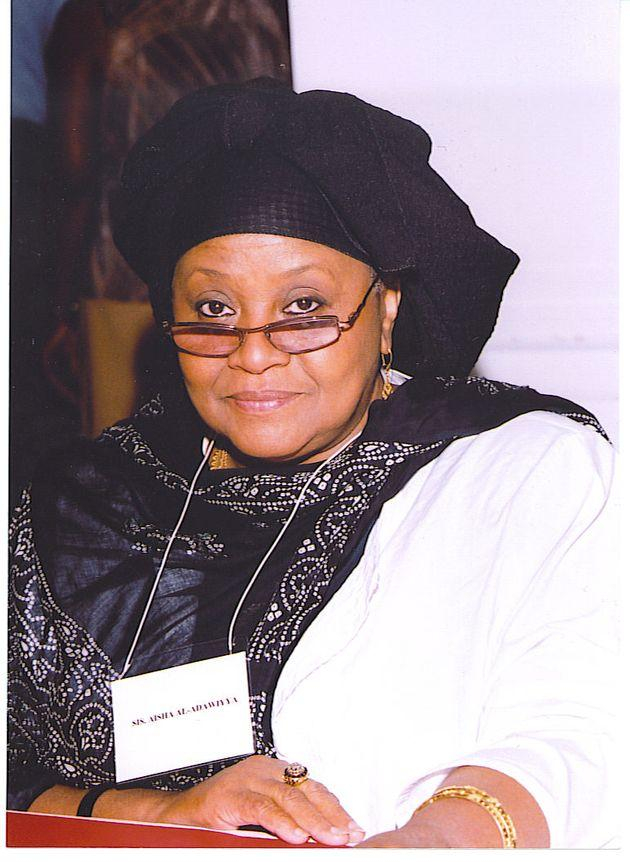Aisha Al Adawiya on Why We All Must Learn African American (Muslim) History
Community
|
Feb 21, 2020
|
8 MIN READ

Editorial note: This post is part of a site-wide discussion and campaign about "This is what America looks like," in which we are exploring the lives of powerful Muslim women, our activism and work and how we are standing up and showing up.
By Nargis Rahman
From the founding this country’s earliest Islamic schools to making inroads in science, technology, education, criminal justice and more, powerful Muslim women paved the way for our current generation of leaders, scientists, activists, educators and titans of industry. Haute Hijab is focusing on founders and the mothers of movements for Black History Month and beyond as part of our focus on “This is What America Looks Like.”
These women have helped bridge the gap between understanding Islam in America, social justice, racial justice, promoting peace and so much more. They are inspirational leaders who exemplify the meaning of living the sunnah.
One such luminary is Aisha al-Adawiya, the founder of Women in Islam Inc. which was conceived in 1992 to provide a platform for Muslim women to discuss human rights and social justice. In her work with the Preservation of the Black Religious Heritage Documentation Project for the Schomburg Center for Research in Black Culture, she focuses on preserving the Islamic voice. She also serves as a consultant for interfaith organizations, and is on the board of various organizations.
I spoke with Sr. Aisha about her work and her passion for helping women be in all spaces to uplift communities.

Aisha Al Adawiya; image source: Women in Islam
Who are some of your mentors? How have they inspired you?
Malcolm X is my most profound mentor. [Also], elder women in the African American community, Muslim and non-Muslim women in my biological family who showed me how to live with dignity and honor, sacrifice ungrudgingly, and how to care deeply for people.
Your work holds such historical and religious significant in various Muslim communities. Which other Muslim communities could benefit from learning from your work, and how?
I think all of us need to learn the historical significance of the experiences of African Americans and African American Muslims. That history informs and empowers all of our communities. [It] necessitates addressing very hard issues that we tend to shy away from. I like to highlight those issues that are uncomfortable so we can break through some of their barriers. We won't progress [until] if and when we do. [It's] foundational and not at all pretty, [but] liberating.
We all stand on the shoulders of giants in everything we do. Your work speaks directly to that. Who do you admire from American Muslim history?
All of the sisters and brothers, Muslims and non-Muslims, who work quietly behind the scenes who are not ego driven. They are the quiet soldiers doing the work and holding up the flag.
Whose stories have we not heard enough from our American Muslim communities? Or, whose stories have you heard that we all need to hear?
We haven’t heard enough about the early pioneers of Islam in this part of the world, especially in the African American community. We need to hear those stories because there is a lot of wisdom, and it would help us chart a new course. I see a lot of reinvention of the wheel, because we don’t know history.
Tell me about your work as a founder of Women in Islam Inc.
I founded Women In Islam in the early ‘90s as a result of rape atrocities in Bosnia, after becoming Muslim in the early ‘70s. I have always been very passionate about learning about Islam and [needed to know] how [others who embraced Islam] practiced my newfound faith.
When I saw primarily what happened to Bosnian women, the horror stories of rape camps, I saw that women outside of the Muslim community were mobilized around this issue - Western feminists. … Serbian philosophy at that time was to impregnate Bosnian women. Genocide [was]happening too. I felt that … since the majority of these women are Muslim, there needs to be a Muslim voice here somewhere. That was the catalyst. I needed to join these [non-Muslim] women who were talking about it, educating [Bosnian] women that they are Muslim and their religion is going to reject them because they’ve been raped. … Well, this was cultural. It was not Islamic.

Aisha Al Adawiya advocating for integration in the mosque. Image source: The National
I founded [Women in Islam] as one of the first Muslim women human rights organizations. Karamah came immediately after that [and had] a scholarly base. I was more activist-oriented, speaking to stuff happening on the ground. I wanted to create a platform for Muslim women to speak on whatever issue without waiting to have or ask permission from anyone. We had many capable, qualified women on so many fronts. This organization was to be a platform [for them] to do their thing. This organization was born out of crisis and continued in crisis mode.
[In the early years there was] a lot of fights at the United Nations. I was not welcome; the feminist movement was not welcoming [of someone] with a religious identity. This changed somewhat over time.
Now it's time for a new generation [to take over the organization]. I’m in the process of seeing what that’s going to look like.
What do you do in your work with the United Nations and with the Schomburg Center for Research in Black Culture?
[My work at the United Nations partly] begins with [what was happening in] Bosnia. There were lots of meetings happening at the U.N., and at one of those meetings a woman looked at me and said, “Excuse me? This is a feminist movement here.” [She made an immediate] assessment of me [and thought] I must be in the wrong place. I responded that I’m not a feminist, I’m a Muslim. I believe in women’s liberation. I don’t have to be a feminist in order to believe in women’s liberation. So, I had the tenacity to make sure I showed up [in those meetings]. Sometimes just because you’re in the room the temperature changes.
I was a board member of Karamah for a long time; I valued their work in creating scholarly work. I continue to want that for Muslim women; women to be the experts grounded in their tradition to address all the issues that confront our communities. Women’s issues are not just about women; they are community issues. So, Karamah would do programs every year at the U.N. as well as annual meetings. I would attend and represented Karamah and Women in Islam for several years.
I’ve always had some relationships with … other countries’ missions and would be invited to come and give talks, to try and bring a perspective as a practicing Muslim woman and what contributions could be made to the larger narrative that was going on at the U.N.
[Regarding the Schomburg Center], I’ve been at the Center for over 30 years. I let people know African Americans are viable Muslims; we have something to offer. In this context I wanted to make sure in the collection process [of narratives and information] that it’s an educational endeavor. In many of these institutions, they don’t know much about Islam. Much of their focus is not in Islam. My job continues to be to provide an opening for that voice.
One project proposal was the “Black Religious Heritage Project.” There are churches on every corner in Harlem. The idea was to document the presence of these churches, [and the] language was about the African American focus on Christianity. But you cannot talk about religious experience without the inclusion of African American Muslims. I became involved in the problem. It’s no longer funded, and still a lot of work needs to be done to document this experience. A lot of people are doing it online. That's my passion - to make sure that story continues to unfold.
People come from all over the world to do research at Schomburg. They find the African American Muslim experience in addition to the Nation of Islam. We have so many wonderful collections here. I’m very happy to be instrumental [in all this] in a small way. We have Malcolm X’s papers here at the Schomburg Center, recently acquired … lost chapters. People come from all over to [read and use] these resources.
Another passion [I have is to] find a way to establish a Malcolm X fellow at the Schomburg Center. I still feel there needs to be someone from the Muslim community specifically devoted to that project. I'm blessed that I'm given the opportunity to keep the connections in the Muslim and broader community as my work here at the center in outreach, grassroots and resources.
What would you like to tell people who wish to follow in your footsteps?
What are two or three ways a person can balance their family, social and professional lives?

Have you experienced people policing the way you cover or dress? If so, how do you handle the haters?
I don’t give them any oxygen at all. I see it as their issue. If they want to engage in a respectful manner, I welcome that. I don’t tolerate disrespect or arrogance.
Tell me about your upbringing; how has impacted where you are now?
My upbringing has everything to do with who I am. I was born and raised in Christian family down south. I came to New York in the early ‘60s and encountered a lot of things that were happening, including Malcolm X’s teachings. I never joined the Nation [of Islam], but I was absolutely transformed by his message and continue to be everyday. He is my mentor
I credit my upbringing as a protection from many of the destructive things [that happened] in the ‘60s. As Southerners, we had very similar Islamic values [as Christians], such as respecting elders. When I was growing up, any community elder could chastise you. Everybody knew you. That was amazing. I credit my family and community growing up there for who I am today.
Closing thoughts?
I love Islam. It unfolds for me everyday.
Knowledge is the lost property of the Muslim, so take it wherever you find it. We don’t have to reinvent the wheel. Reach out to other people. The world is big. At our core people want to be together and love each other. We need to do more of that.
The interview has been edited for brevity.
Subscribe to be the first to know about new product releases, styling ideas and more.
What products are you interested in?

